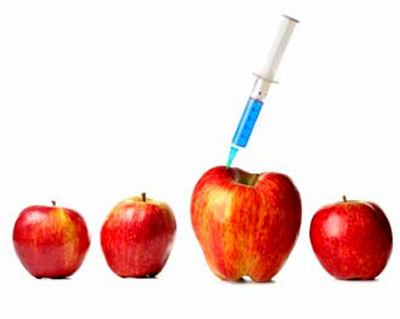|
After setting sights on creating a heavily modified apple that ‘never browns’ and doing their very best to hide the fact that they are indeed genetically altered, a biotech corporation known as Okanagan Specialty Fruits is now pushing for their new genetically modified apples to hit the market.
The company recently submitted an
application to the Canadian Food Inspection Agency to launch
their initiative to get the apples into your local grocery market
and reap ‘improved industry sales’, but they made sure that the data
was not available to the public.
On July 9th,
the USDA posted
the corporation’s request for approval on their website for the
genetically modified ‘non-browning’ apples, giving the public 60
days to comment before ultimately making a decision.
Speaking on behalf of the Canadian Biotechnology Action Network, activist and biotech researcher Lucy Sharratt stated:
The crusade to bring genetically
modified apples has been met with extreme activism from concerned
citizens as documented by a number of new polls and surveys. Giving
a powerful statistical concept of how citizens see the proposition
of the modified apples, a consumer
poll commissioned by apple grower
associations based in British Columbia and Quebec revealed that 69%
of Canadians simply do not want the genetically modified apple.
In case you’re skeptical, even Monsanto’s top PhD researchers have openly stated to former Monsanto employee and whistleblower Kirk Azevedo that during the genetic modification process,
Eventually leaving the company and coming out to expose their health-wrecking practices, Azevedo reports:
There is still time to submit your comments to the USDA regarding the potential approval of genetically modified apples.
The Alliance for Natural Health has established a simple form to do so.
|

